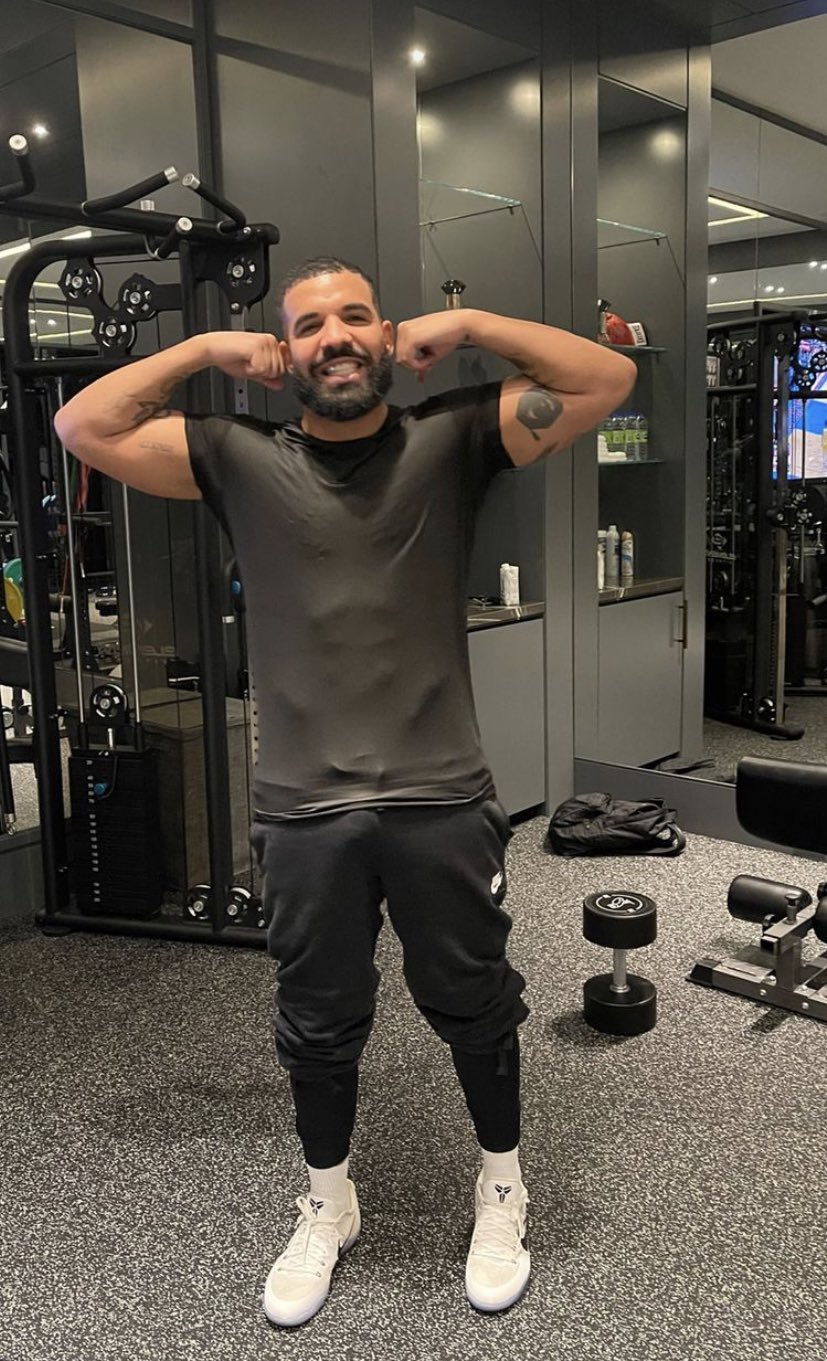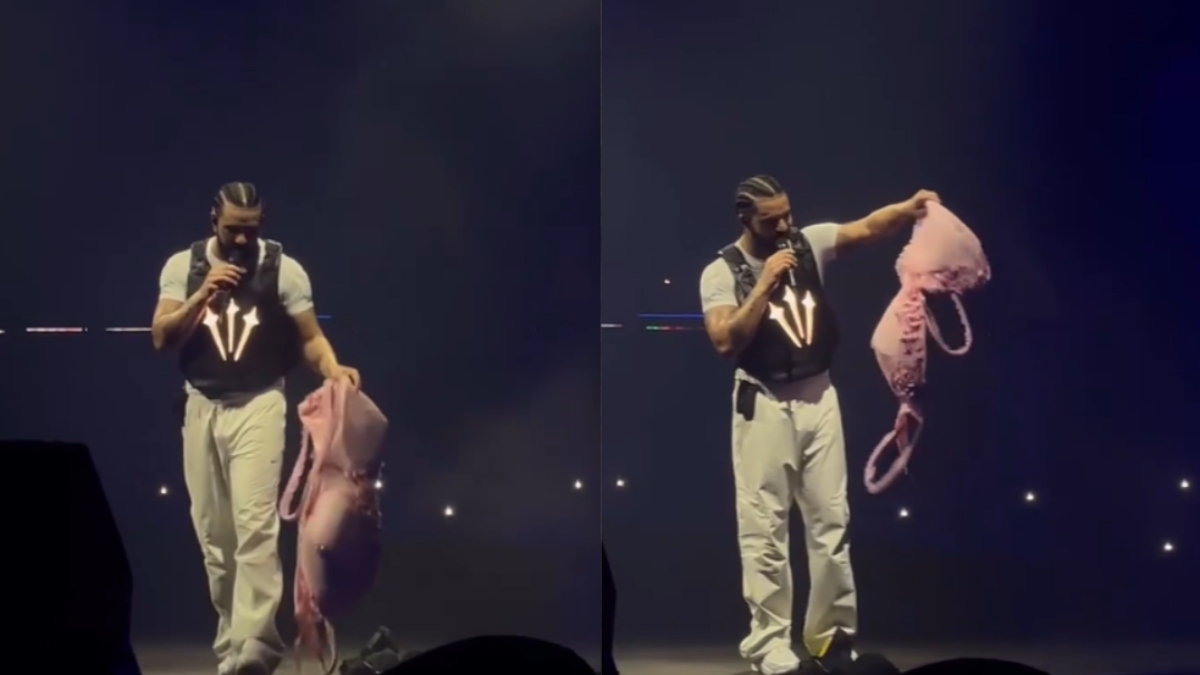Drake Viral Video & Concert Photo: The Sad Truth & Fan Reactions
Is it possible for a concert to be both a celebration of artistry and a stark reflection of societal anxieties? Recent events surrounding Drake's performances suggest that the answer is a resounding yes, revealing a disturbing trend that has left many feeling uneasy and questioning the state of modern fandom.
The entertainment world, particularly the realm of music, often thrives on spectacle and connection. Concerts are designed to be immersive experiences, offering fans a chance to bond with their favorite artists and share in a collective moment of joy. However, in recent weeks, a shadow has fallen over this idyllic picture. Viral content, leaked videos, and a general sense of unease have painted a different portrait of what should be a celebratory event. The focus has shifted from the music itself to a series of events that raise serious questions about privacy, parasocial relationships, and the impact of social media on public figures.
A photograph from a recent Drake concert, part of his "6 God's Anita Max Win Tour" in Australia, has gone viral, but not for the reasons one might expect. The image, initially shared widely across social media platforms, depicted the audience holding up signs, which appeared to be a direct and often crude appeal to the artist. This wasn't the usual display of adoration ("I love you Drake" or "Marry me"). Instead, the signs seemed to be focused on specific, often intimate, requests. This prompted immediate concern and discussion, leading many to describe the scene as "dystopian" and "chilling."
The situation escalated with the emergence of an alleged explicit video featuring the rapper. The clip, shared on various social media platforms, including X (formerly Twitter), quickly gained significant traction, becoming a hot topic worldwide. The video's virality sparked widespread shock and a flurry of reactions, including those from wrestling legend and actor John Cena, who took to Instagram to share his own response. Drake himself appeared to indirectly address the situation through an Instagram post, including a screenshot from the viral video in a series of images.
The speed at which the video spread was noteworthy, fueled by the relentless nature of social media. According to information, the first known leaker was a Twitter/X user named @d4dfur, but many others, like @yumkittymeow, soon joined in, contributing to the video's rapid virality. The incident has raised important questions about how easily private content can be disseminated, the responsibility of those who share it, and the impact such incidents have on the individuals involved.
This isn't the first time Drake has faced scrutiny related to his online presence. Earlier, a photo emerged showing him leaving a club, looking somewhat dejected, wearing wired headphones. Fans immediately speculated he was listening to Kendrick Lamar's diss track. This incident, while seemingly minor, further demonstrates how fans constantly analyze and interpret every aspect of a celebrity's public life. This constant scrutiny reflects a deep sense of investment and expectation from fans, who use social media to create a personal connection with celebrities, leading to disappointment when reality does not align with the constructed image.
In July, Drake was also pictured with a cocktail waitress in Chicago, and the photo also went viral. The context behind the image wasn't clear, but its circulation highlights the public's ongoing fascination with the artist's personal life and the way these details are presented, perceived, and shared.
The situation involving Drake underscores the complex relationship between artists and their fans in the digital age. What was once considered private can now become public knowledge in an instant, exposing vulnerabilities and demanding greater caution.
In response to the leaked video, Drake's fans created many memes online to mock him.
The issues surrounding Drake's recent public appearances and leaked content go beyond the individual artist and touch on broader societal issues. These events reflect the impact of social media on public perception, the complexities of modern fandom, and the blurred lines between personal and public lives in the digital age. They also offer a somber reminder of the importance of privacy, respect, and thoughtful engagement with the content we encounter online.
Table: Aubrey Drake Graham's Bio
| Category | Details |
|---|---|
| Full Name | Aubrey Drake Graham |
| Born | October 24, 1986 (age 37) in Toronto, Ontario, Canada |
| Nationality | Canadian |
| Occupation | Rapper, Singer, Songwriter, Producer, Actor, Entrepreneur |
| Genres | Hip hop, R&B, Pop |
| Instruments | Vocals, Piano |
| Years Active | 2001present |
| Labels | Young Money Entertainment, Cash Money Records, Republic Records, OVO Sound |
| Associated Acts | Lil Wayne, Nicki Minaj, Rihanna, Kanye West, Travis Scott, Future |
| Notable Albums | Thank Me Later (2010), Take Care (2011), Nothing Was the Same (2013), Views (2016), Scorpion (2018), Certified Lover Boy (2021), Honestly, Nevermind (2022), For All The Dogs (2023) |
| Awards and Achievements | Numerous Grammy Awards, Billboard Music Awards, and other industry accolades. One of the best-selling music artists in the world. |
| Net Worth | Estimated at $250 million (as of 2024) |
| Official Website | octobersveryown.com |
The incident also prompted reactions from others, including the popular streamer Adin Ross, who sent Drake a voice memo about the clip. This action shows how events can spread beyond direct interactions, even influencing those indirectly connected to the artist.
These events have highlighted a dark side to the modern fame machine, where privacy is constantly at risk, and the line between performer and spectator is increasingly blurred. The case of Drake serves as a cautionary tale, a warning of the dangers inherent in a world where every action can be instantly broadcast and scrutinized. Thu, February 20, 2025 at 3:07 pm UTC.
The response of Drake himself is also significant. Instead of issuing a formal statement or remaining silent, he addressed the situation with humor during his performances. He poked fun at his alleged viral video during a concert wednesday night shortly after he hit the stage at bridgestone arena in nashville, tenn., the rapper said into the mic, i know y. This method of dealing with the situation reveals a more adaptable approach to dealing with the media, attempting to disarm the situation and maintain a personal connection with his audience through direct engagement.
The issues faced by Drake are not unique to him. Other celebrities, artists, and public figures have also experienced similar instances of private content being shared without their consent. These experiences are indicative of the need for a serious discussion on the balance between technological advances, privacy, and celebrity culture. The case of Drake is, therefore, more than just the story of a famous artist; it is a snapshot of a moment in time, reflecting significant changes in culture and society.


Detail Author:
- Name : Dr. Bernard Tromp V
- Email : jwalsh@gmail.com
- Birthdate : 1976-09-20
- Address : 5284 Goyette Parkways Suite 526 Wiltonberg, LA 56495-5833
- Phone : 1-301-994-8866
- Company : O'Kon PLC
- Job : Computer Support Specialist
- Bio : Voluptatum itaque corporis rerum. Vel ex illum qui esse. Eius ducimus numquam earum et.